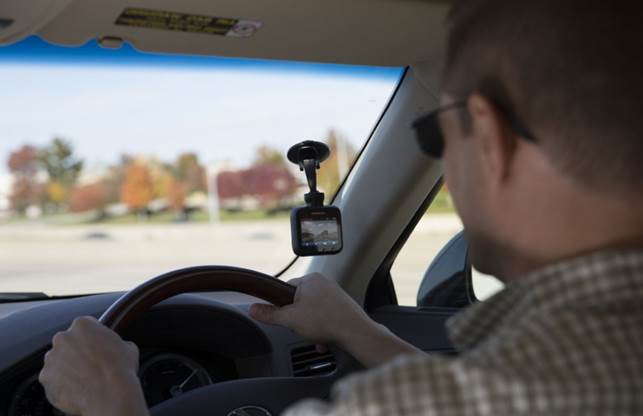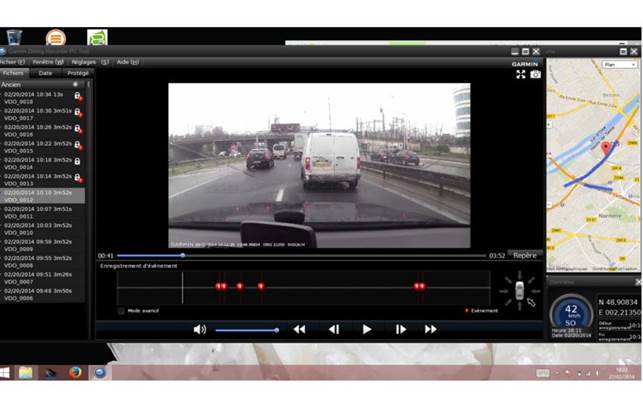Garmin utilises its GPS technology in a new way
Having worked in the insurance industry, I'm well aware that
determining blame in any accident can be less than straightforward. What
complicates matters are the high number of drivers on the road who aren't
insured, and those who intend to profit from the claims handling systems by
creating intentional accidents.
In those circumstances, it would be helpful if you could
provide an independent view of events to support your story, and the Garmin
Dash Cam 20 is designed to provide that for you.

The device uses
inbuilt GPS technology to time and position stamp the location
The device is about the size of a large ring box, and is
attached to the windscreen of your car using a sucker mount. The fixed focus
lens can capture video in up to 1080p resolution and 30fps, along with still
images, all of which are stored on to a Micro SD card. That can be 32GB, and a
4GB is included. When recording, the device uses inbuilt GPS technology to time
and position stamp the location, providing further evidence about when and
where an event took place. As the recordings are overwritten eventually, a
motion detector in the Dash Cam 20 recognises a heavy breaking or impact event,
and immediately tags that footage not to be erased.
Exactly how long the recordings last is entirely dependent
on what quality you use, and the size of the Micro SD. Using VGA quality and a
32GB card you could record 38.4 hours of travel, and the audio conversations in
that vehicle. At the other end of that spectrum using 1080p and a 4GB card
would loop the last 48 minutes.

Garmin Dash Cam 20
on board
Garmin provides cabling to connect the Dash Cam 20 to your
PC, and also so that it can take power from a car socket. The advantage of
using that power option is that the camera will automatically record when the
ignition is turned, and shutdown when the engine stops.
You can charge the battery in the camera to avoid a dangling
cable, but it then becomes your responsibility to turn the camera on and off,
and recharge it. And, disappointingly the battery only lasts an hour.

Garmin Dash Cam 20
record
So is this worth it? Well, the problem here is that this
device is mostly benefiting the insurance companies, but it's you that's paying
for it. If, by installing this device you got a lower premium then it would be
worth it, but only a few insurance companies are being that proactive.
Typically a 10% discount is being offered for Dash Cams, but you'd need to make
sure it was working in the event of a crash.
My other concern is that should someone intentionally crash
into you to claim whiplash injury then notice this device, potentially exposing
them to a criminal prosecution, they might react aggressively. What's more,
should you do something silly and cause an accident, the other driver might
insist that you turn over the footage as evidence.
It's a shame that driving has come to this but, given the
sums of money involved in automotive insurance these may become compulsory on
every road in the next decade
|
Specifications
·
Dimensions: 6.6cm x 8.21cm x 3.69cm
·
Weight: 121 g Screen: 2.3" TFT LCD
·
Recording framerate: 30 FPS
·
Battery life: up to 1 hour
·
Storage: Can accommodate a MicroSD up to 32GB (Class 10
recommended), a 4GB card is included
·
Also features: Incident detection (G-Sensor), GPS to locate
events. Microphone to record cockpit audio
|